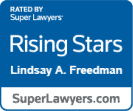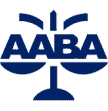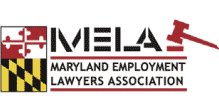Recent Blog Posts
D.C. Voters Approve Ballot Initiative to Increase the Minimum Wage for Tipped Workers
On November 8, 2022, District of Columbia voters approved ballot Initiative 82 ("I-82") aimed at increasing the minimum wage paid to tipped employees. Over the next four years, I-82 seeks to gradually increase the minimum wage for tipped workers in Washington D.C. - until there is a single minimum wage rate for both tipped and non-tipped employees. I-82 attempts to address the wage gap faced by tipped workers by phasing out the tipped minimum wage entirely.
On May 1, 2023, I-82 officially goes into effect and immediately increases the D.C. minimum wage for tipped employees from $5.35 to $6.00 an hour. On July 1, the D.C. minimum wage for tipped workers will again increase to $8.00 an hour. Most critically, the overall D.C. minimum wage will increase at the same time from $16.10 to $17.oo an hour. By July 2027, the D.C. tipped minimum wage rate will be eliminated, and all hourly employees must receive the same pay.
Please contact Freedman Law, LLC, if you have questions regarding your rights in the workplace.
Back pay can quickly add up in a wrongful termination claim
Unless a worker in Maryland is under an employment contract or is part of a union with a collective bargaining agreement, they are likely employed "at will." Employers in at-will states can let an employee go for almost any reason, even reasons that might seem arbitrary or unfair.
However, the right to fire an employee at will is not unfettered. Employers in Maryland cannot terminate an employee if doing so would violate public policy. If an employer fires an employee in violation of public policy, the employee might have a claim for wrongful termination and could seek damages, including back pay.
What violates public policy?
There are a variety of circumstances in which a termination violates public policy.
Firing an employee in violation of state or federal law violates public policy. State and federal law hold that employees in legally protected categories such as race, sex and religion cannot be fired for discriminatory reasons. A discriminatory firing violates public policy and could form the basis of a wrongful termination lawsuit.
NLRB Bans Confidentiality/Non Disparagement in Severance Agreements
On February 21, 2023, the National Relations Labor Board (the "Board" or "NLRB") issued a decision in McLaren Macomb, which held severance agreements containing broad confidentiality and non-disparagement provisions infringe on the rights of employees covered by the National Labor Relations Act (the "Act").
This decision reverses the Board's previous decisions in Baylor University Medical Center and IGT d/b/a International Game Technology, both issued in 2020. These earlier cases found that the inclusion of confidentiality/non-disparagement provisions within severance agreements was not, on its own, a violation of the Act.
In McLaren Macomb, the Board reversed course and held employers cannot require individual employees to choose between receiving benefits and exercising certain rights under the National Labor Relations Act. The Act makes it an unfair labor practice for an employer to interfere, restrain, or coerce employees in the exercise of their rights. As such, the Board reasoned in McLaren Macomb that confidentiality/non-disparagement provisions would be improper since it may dissuade employees from filing unfair labor practice charges, offering assistance to other employees, and scaring off employees from aiding the Board with any investigations.
What can you do to build your workplace discrimination case?
Do you feel like you've been treated unfairly in your workplace because of being in a protected class of people, such as those with a disability, those over a certain age, or those of a racial, religious, or ethnic group? If so, then you might be chomping at the bit to get back at your employer, especially if you suffered from a negative employment action that was taken against you, such as demotion or termination.
While you might think that holding your employer accountable will be easy, it can be more challenging than you realize. This is because your employer is going to do everything it can to deflect allegations of wrongdoing. Therefore, it will provide what appears to be legitimate justifications for its actions against you, which may include poor work performance or excessive tardiness or absences.
So how do you go about proving your workplace discrimination case?
If you suspect that you've been discriminated against in the workplace, then you need to be diligent in gathering the evidence that you need to support legal action against your employer. Here are some ways that you can go about doing that:
Key Changes to D.C. Employment Laws
On March 22, 2023, significant amendments to employment-related laws in Washington D.C. were enacted, impacting the D.C. Human Rights Act, Cannabis Employment Protections Amendment Act of 2022, Paid Family Leave Amendment Act, and the Non-Compete Clarification Amendment Act of 2022.
D.C. Human Rights Act ("DCHRA"):
The D.C. Human Rights Act was amended in three critical ways. Firstly, independent contractors are now protected under the law. Secondly, "homeless status" is now recognized as a protected characteristic. Thirdly, harassing conduct is no longer required to be "severe or pervasive," but instead, the "totality of the circumstances" determines whether or not conduct constitutes harassment.
Employers must display an Equal Opportunity Poster that accounts for these changes.
Cannabis Employment Protections Amendment of 2022:
The Cannabis Employment Protections Amendment Act of 2022, going into effect in July 2023, prohibits employers from taking adverse action against employees who use recreational cannabis, participate in D.C. or another state's medical cannabis program, or fail an employer-required cannabis drug test. There are exceptions to this prohibition for "safe-sensitive positions" and if actions are required by federal statute, regulation, contract, or funding agreement. Employers should review their drug policies to ensure compliance.
What you need to know about reasonable accommodations
Everyone deserves equal employment opportunities. However, if you suffer from a disability, the burden is going to fall on you to ensure that your rights are protected. This means knowing the law and how to navigate it to your advantage. For those who are disabled, this includes asking for reasonable accommodations when necessary, and knowing how to work with an employer who is resistant to providing such an accommodation or who outright denies such requests.
Defining "disability"
Before you can request a reasonable accommodation, you have to demonstrate that you have a disability. Under the Americans with Disabilities Act, this means showing that you have a physical or mental condition that substantially limits at least one major life activity. Although many of these disabilities may be obvious to your employer, sometimes that's not the case. If your condition isn't obvious to your employer, it can request documentation of your medical condition.
When is a worker entitled to overtime pay in Maryland?
Hard-working employees deserve to be paid for their efforts, especially if they put in hours above and beyond their normal shift. Employers also benefit when a worker puts in more hours than are expected.
Maryland law and federal law recognize that some categories of employees who work more than 40 hours in a standard workweek should be paid at a rate higher than their normal wages for the extra time spent on the job. For these reasons, some workers are entitled to overtime pay.
Who can receive overtime pay?
Workers in Maryland are entitled to 1.5 times their normal wage in overtime pay if they work more than 40 hours in a seven-day workweek and are not exempt from state or federal overtime laws.
Vacation time, sick leave and holidays do not count toward the 40-hour-plus overtime requirement. Overtime only includes time an employee is actively on the job.
Who is exempt from overtime pay?
Not all employees qualify for overtime pay. For example, most executives and administrative and professional employees are exempt from overtime pay in Maryland.
Maryland Expanded Definition of Sexual Harassment
Effective October 1, 2022, Maryland Senate Bill 450 (SB 450) revised the definition of sexual harassment in the workplace for Maryland employees and employers. Before this new law, the State of Maryland followed the federal definitions of "harassment" and "sexual harassment." The federal standards under the Title VII of the 1964 Civil Rights Act required an employee prove that the harassment was "severe or pervasive." A severe or pervasive standard is often a much higher bar than employees typically expect. Under this federal standard, fleeting sexual remarks might not rise to a level of legally actionable sexual harassment.
SB 450 lowered the bar to prove harassment or sexual harassment in Maryland. Now "sexual harassment" includes conduct, which need not be severe or pervasive, that consists of unwelcome sexual advances, requests for sexual favors, or other conduct of a sexual nature when:
(1) Submission to the conduct is made either explicitly or implicitly a term or condition of employment of an individual;
When and why can I file a wage claim?
In Maryland, workers who are not paid the wages they are entitled to under the law must understand that they have the right to file a claim about it. This is often viewed as a simple failure to pay workers on time and in full based on the minimum wage, but there are other ways in which wage violations can and do take place.
Often, workers do not protest when they are not paid their legal wages plus overtime because they are unsure of their rights. They might also be reluctant due to fear that they might lose the job. Employers must adhere to the law and when there are violations taking place, workers should have a grasp on when and why they can file a wage claim. Having help can be essential for reaching a successful outcome.
Key points to know about wage issues and how to address them
Employers are not doing workers a service by paying them for work they have done. They are legally required to do so. These are services that are completed at the request and under the supervision of an employer. For that, workers are entitled to payment.
Signs that you're subjected to pregnancy discrimination
Being pregnant has its own challenges, but the difficulties can be exacerbated when your employer uses your condition to discriminate against you. You'd think that with state and federal protections, as well as an increased public awareness of workplace discrimination, this behavior would be rare, but it's far more common than many people realize.
And the ramifications of discrimination can be far-reaching. You may find yourself uncomfortable and even fearful at your job on a daily basis, worried that reporting the issue may result in retaliation. And if you do make a complaint, you might be concerned that you'll end up facing reduced hours, changed assignments, demotion, reduced pay or even termination. This is why it's critical to know how to identify pregnancy discrimination and bring it to a stop in a way that protects your interests.
Spotting signs of pregnancy discrimination
One reason why people misperceive the frequency with which this type of discrimination occurs is because they simply shrug off discriminatory practices as inane behavior. But discriminatory practices can lead to adverse employment actions, including demotion, termination or being passed over for a job or promotion altogether.













